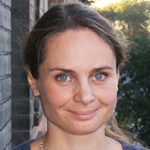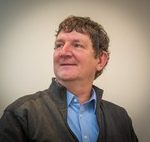Andrea Révész (University College London, UK)
“Task complexity and technology-mediated language learning: Issues and possibilities”
Download slidesIn the past three decades, the field of task-based language teaching (TBLT) has generated substantial theoretical and empirical work on cognitive task complexity. The bulk of research on task complexity, however, has been conducted in face-to-face settings; less is known about the effects of task complexity on L2 use and development in technology-mediated environments. In this talk, I will explore how the cognitive complexity of technology-mediated tasks may influence L2 production and learning, and will offer suggestions how task complexity research may be extended in technology-mediated contexts to inform TBLT theory and practice.

Bio: Andrea Révész is an associate professor in applied linguistics at the UCL Institute of Education, University College London. Her main research interests lie at the interfaces of second language acquisition, instruction and assessment, with particular emphases on the roles of task, input, interaction, and individual differences in SLA. Currently, she is also working on projects investigating the cognitive processes underlying second language writing and reading performance. She serves as associate editor of the journal Studies in Second Language Acquisition and is Vice-President of the International Association for Task-based Language Teaching (TBLT).
Detmar Meurers (University of Tübingen, Germany)
“Analyzing linguistic complexity – and then what?”
Download slidesLinguistic complexity can be analyzed at all levels of the linguistic system, language use and human processing. Such analyses can provide empirically rich perspectives on second language development, especially given large scale data available through CALL systems. After illustrating this with EFCamDat data by 174,000 learners of the Englishtown system, we explore how we can turn from such post-hoc observations of development to CALL interventions aimed at fostering complexity development through adaptive input. (The work is based on joint research with Xiaobin Chen, Dora Alexopoulou, Akira Murakami, and Marije Michel.)

Bio: Detmar Meurers is Professor of Computational Linguistics at the University of Tübingen, Germany and on the steering board of the LEAD Graduate School and Research Network in Empirical Educational Science there. As head of the ICALL-Research.com group, his work focuses on Intelligent Computer-Assisted Language Learning, and computational linguistic methods in Second Language Acquisition research and language teaching. He has published on intelligent language tutoring systems, automatic short answer assessment, the automatic analysis of learner corpora, and input enrichment and enhancement applications for language learners. He recently co-edited a special issue of the journal “Language Learning” on “Language learning research at the intersection of experimental, corpus-based and computational methods”.
Jan Elen (KU Leuven, Belgium)
“Dealing with complex learning: opportunities offered by technology”
Download slidesAlthough complex learning goals are at the core of education. achieving such goals is difficult. Technology may help in two respects. First, as the result of technology of education, instructional design (I.D.) models may offer a framework to structure effective education for complex learning. Second, as technology for education and within the context of an I.D.-model, technological tools can be used to support students’ learning activities.

Bio: Jan Elen is full professor at the KU Leuven, Center for Instructional Psychology and Technology. He was the head of the educational support office of the KU Leuven, coordinator of the expertise network School of Education of the Association KU Leuven, and vice-dean Education of the Faculty of Psychology and Educational Sciences. He is currently the academic leading the teacher education program in behavioural sciences. He has been the coordinator of the Special Interest Group on Instructional Design of the European Association for Research on Learning and Instruction and is the current editor-in-chief of ‘Instructional Science’. His research mainly pertains to instructional design and higher education. He teaches courses on educational technology, the design of learning environments and didactics for behavioural sciences.